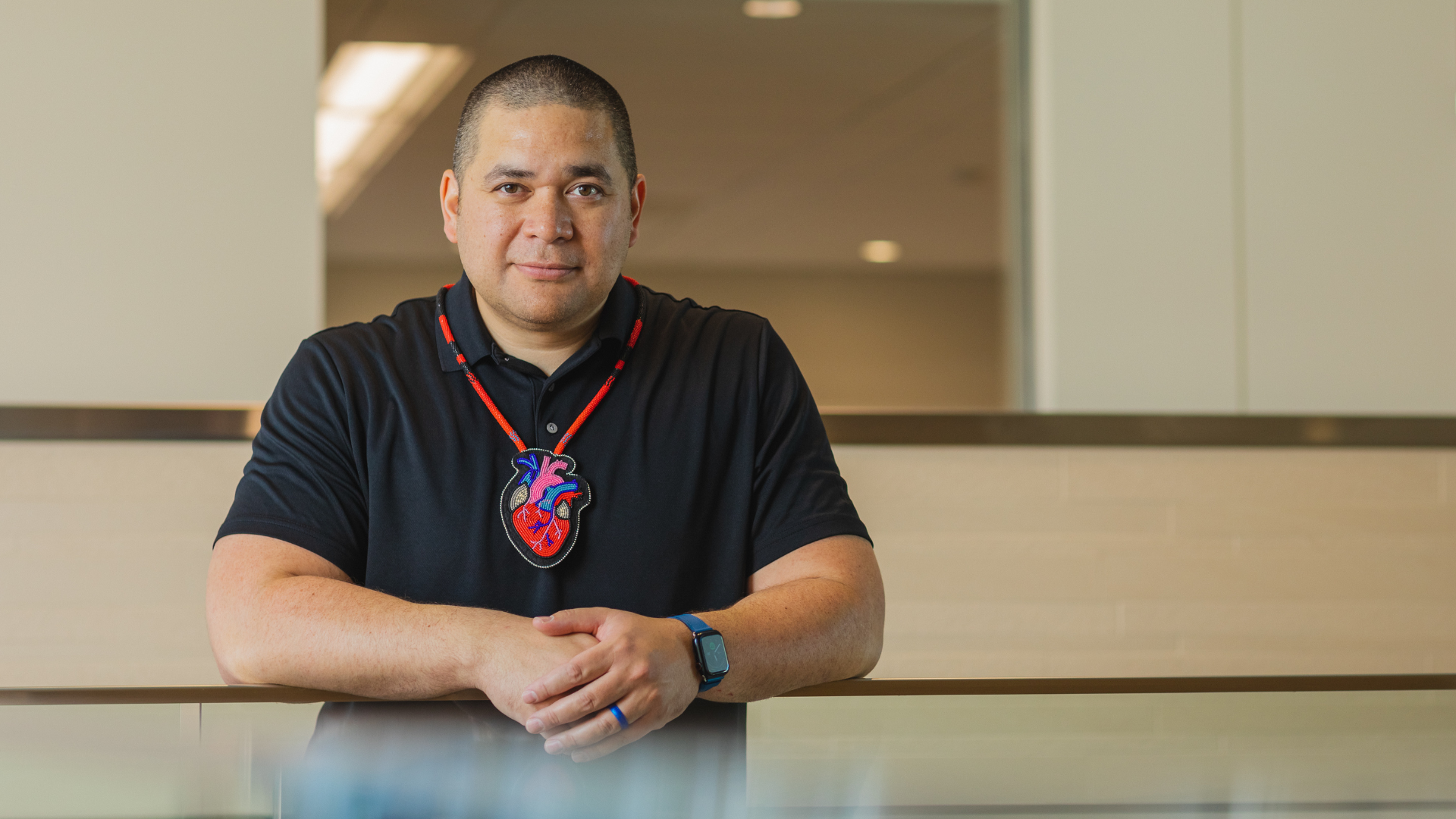HEALTH POLICY AND MANAGEMENT RESEARCH STAFF
Navigating Canada’s rapidly-evolving health landscape will require a new kind of leader
November 7, 2018 ·
Contributed by: Mary Taws, Communications Officer, Health Leadership Academy

“Culture is paramount,” says DeGroote’s Michael Hartmann, Co-Director of the HLA. “Technology can have a transformative impact on our physical environment, but ultimately the space around us gets changed by people. That’s why our research will focus on equipping people with the right skills to navigate potential futures.”
Meeting the needs of patients in a rapidly-changing world will require future leaders in health to approach work differently, according to McMaster’s Health Leadership Academy (HLA).
Co-Director of the HLA, Michael Hartmann, says the best way to navigate the forces shaping health – from new technologies to complex patient populations – is to consider the potential futures they could collectively create.
“There are different potential paths the health system could take,” says Hartmann, who is also a Professor of Human Resource Management at the DeGroote School of Business, Executive Director of the Executive MBA in Digital Transformation (EMBA), and Principal of the Directors College.
“Looking forward to understand how drivers of change could create different versions of the health system in the future will help us to make decisions now,” he continues.
That’s the crux of the HLA’s new research project: Preparing Leaders for Alternative Futures of Health.
This ongoing research is concerned with how we prepare future generations of health leaders for an ever-shifting health landscape. Research team members Lynda van Dreumel and Jenn Green reviewed a wide range of sources to take stock of where Canada’s health system is today.
Rick Hackett, DeGroote Professor and Canada Research Chair of Organizational Behaviour & Human Performance, and Chair of the HLA research committee, says the review of over 200 documents will be the basis for a forthcoming research paper on the key drivers of change for Canada’s health system.
“The forthcoming report will be heavily evidence-based,” says Hackett. “It draws on a lot of reputable research, but also the respected views of others outside of academia, such as futurologists and the popular press.”
Van Dreumel says that the pace of change means that we need to equip healthcare professionals with new ways of thinking and doing.
“In our preliminary research, we have identified a number of driving forces that have the potential to transform our healthcare system,” van Dreumel explains. “No matter what the future holds, what we do know is that emerging health leaders will need to be flexible in the way they understand, organize and deliver care to people.”
Traditionally, the health system has categorized health as a lack of illness. However, as our world becomes increasingly complex and interconnected, our concept of health has broadened to include overall physical, mental and social well-being.
According to the HLA’s initial research, this paradigm shift will require leaders to view patients as partners as they integrate and improve services across the health system.
Taking lessons from the past and the realities of the present, the HLA is collaborating with the McMaster Health Forum to focus on the future for the next phase of the project.
In the coming months, the Health Forum will execute a dialogue of over 60 experts across Canada’s health landscape. Armed with this data, the HLA’s ultimate goal is to develop nimble training programs that prepare emerging health leaders for future scenarios they might encounter.
“Culture is paramount,” explains Hartmann. “Technology can have a transformative impact on our physical environment, but ultimately the space around us gets changed by people. That’s why our research will focus on equipping people with the right skills to navigate potential futures.”
Mapping the alternative futures of health for the next generation is a fitting flagship endeavour for the HLA. A joint venture between McMaster’s DeGroote School of Business and the Faculty of Health Sciences, the Academy seeks to transform healthcare by nurturing a community of leaders.
As the health system is buffeted by a number of factors, so too are other industries. Hackett says other fields could benefit from the HLA’s ongoing research on forces shaping healthcare.
“Mapping out alternative futures is important for other industries beyond the healthcare sector,” says Hackett. “For example, jobs today, and in the future, will increasingly call for worker knowledge, skills, abilities and experiences that are not easily supplanted by technology, and leader character and style will become increasingly important.”
“Across spheres, we need to be aware of the velocity and intensity of change,” Hackett elaborates. “Not simply to survive, but to anticipate and build the leadership capabilities needed to prosper.”















